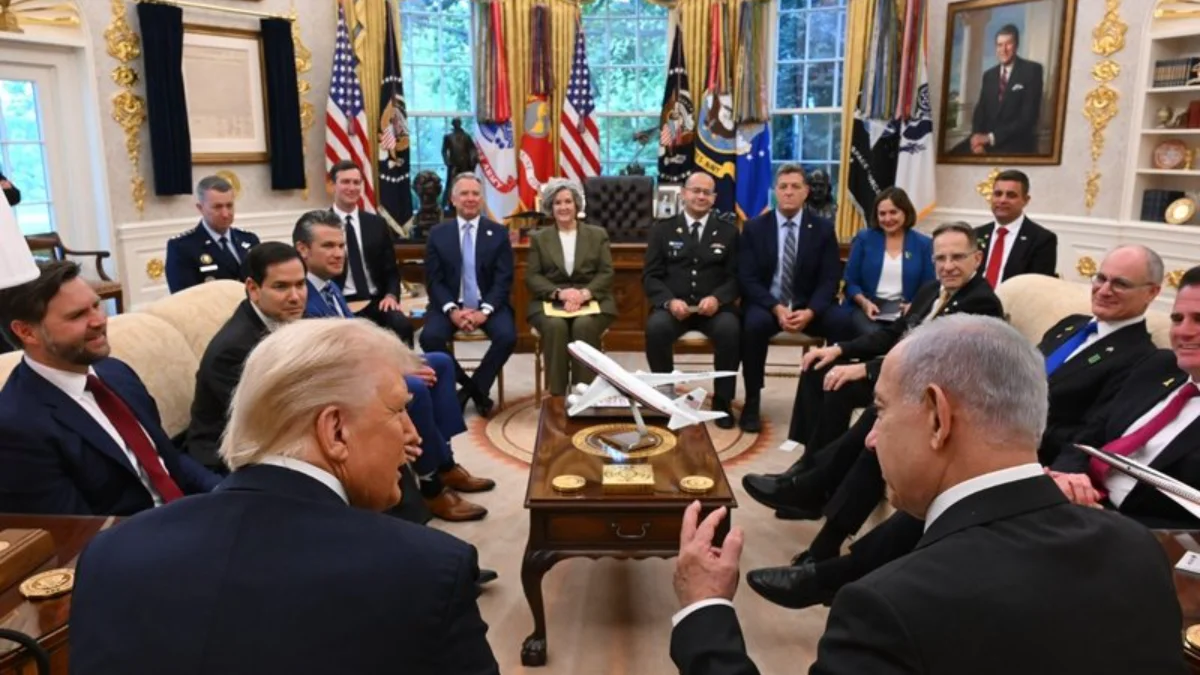When Narendra Modi tweeted his support for former President Donald Trump’s 20 point peace plan on September 30, he did more than issue a diplomatic nod. He signalled India’s willingness to lean into regional peacemaking. Modi described Trump’s plan as a “viable pathway to long term and sustainable peace” for Israel, Palestine and the broader West Asian region.
For years, conflict in Gaza has defied diplomatic fixes. Thousands have died. Hostages remain. Ceasefires come and go. In that landscape, Modi’s endorsement, especially during a time of global realignment, carves India not merely as an observer but as a mediator in waiting.
In this article, we’ll:
- unpack what Modi's endorsement signals in India’s foreign policy
- explore the architecture of Trump’s 20 point proposal and its reception
- examine the risks and geopolitical implications
- peer ahead: does this plan have a future, and can India help shape it?
Modi’s support didn’t come in a vacuum. India has long charted a careful line on the Israel-Palestine question: public sympathy for Palestinian suffering paired with growing ties to Israel in defense and technology. His statement blends both traditions.
By stepping forward, India hints at deeper diplomatic engagement. Modi’s framing, “all concerned will come together behind President Trump’s initiative,” is both an appeal and a signal.
India’s calculus is multifaceted:
- Regional legitimacy. India, an Asian power, aims to expand diplomatic weight in West Asia beyond energy ties.
- Humanitarian optics. With tens of thousands killed in Gaza, international audiences expect moral clarity.
- Strategic hedging. As US–Middle East dynamics shift, India stakes its claim as a stable, independent partner.
Observers note that Trump’s political instincts have often been compared to his tariff-first policies in trade disputes. As explored in Trump’s tariff gamble: protectionism, politics and the battle, the former president tends to frame negotiations as contests of leverage. His Gaza plan appears to borrow from that same playbook — transactional, staged, and heavily conditional.

Understanding Trump’s 20 Point Plan and Reactions
Trump’s proposal, unveiled alongside Israeli Prime Minister Netanyahu, describes a staged plan for Gaza:
- Immediate ceasefire and hostages exchange within 72 hours
- Disarmament of Hamas with Gaza restructured under a technocratic board
- Phased Israeli withdrawal but continued security control
- Reconstruction, demilitarisation, international oversight
The plan’s reception has been mixed but notable:
- Israel has publicly agreed.
- Hamas is studying it internally before responding.
- Arab and Islamic states expressed tepid support, urging balanced implementation.
In short, the architecture is bold but the acceptance is uncertain.
Expert Insights and Risks
This kind of geopolitical gamble draws both intrigue and caution.
- “The challenge is not the plan, it’s acceptance,” says a regional diplomat, speaking on condition of anonymity.
- Execution risk is high: disarmament, control of borders, rebuilding a devastated Gaza every step invites pushback.
- Domestic politics in Israel and Palestinian territories could derail sequence momentum.
- Regional spillovers: Jordan, Egypt, Qatar, Turkey all have stakes and may resist unilateral moves.
The resonance of risk reminds some analysts of domestic crises closer to home. For instance, as chronicled in Karur stampede horror: survivors recall the night of chaos, even well intentioned management can collapse under pressure when crowd dynamics and trust break down. In Gaza, the stakes are exponentially higher, but the lesson endures: execution matters more than drafting.
India’s Role and the Road Ahead
What can India realistically do, beyond endorsement?
- Diplomatic convening. India could host backchannel talks with Arab states, the US and Palestinian representatives.
- Humanitarian support. India has provided relief in past crises. In Gaza, logistics, medical aid and reconstruction expertise matter.
- Mediation credibility. India’s balanced stance may allow it to act as intermediary when others polarise.
Still, the obstacles are steep:
- Hamas may reject the plan outright.
- Implementation demands security guarantees, peacekeepers and vast funding.
- Any misstep could recoil politically at home in India, especially from diaspora and public opinion.
At its best, this plan offers a ladder out of perpetual conflict. At its worst, a blueprint that collapses into stalemate.
Conclusion
PM Modi’s welcoming embrace of Trump’s Gaza plan marks a pivot. India wants a voice, not just a spectator role. Calling it a viable pathway to peace is aspirational, but India’s influence depends on follow through, regional credibility and real presence.
Will Trump’s carefully laid architecture survive the storm of politics, violence and mistrust? India’s stake is clear not in imposing peace, but in anchoring possibility. The weeks ahead will test whether rhetoric aligns with reality.
Stay informed. Subscribe for updates as this fragile plan attempts to secure peace.
FAQs
Q: What does “viable pathway to long term peace” mean in this context? It means the 20 point plan aims not just for a ceasefire, but structural changes such as disarmament, governance and reconstruction that can sustain peace beyond immediate hostilities.
Q: Does India have leverage in the Israel–Gaza equation? India’s diplomatic weight, economic links and moral standing give it moderate influence, particularly as a bridge builder in multi state dialogues.
Q: What are the main objections to Trump’s peace plan? Critics point to forced disarmament of Hamas, security control by Israel, lack of Palestinian input and high risk of non compliance.
Q: What is the current humanitarian status in Gaza? Over 66,000 Palestinians have been killed since October 2023 according to Gaza’s health authorities. The enclave faces deep humanitarian crises.
Q: Is Hamas likely to accept the plan? As of now, Hamas is reviewing internally and consulting with factions. The demand for disarmament and loss of governance make acceptance very uncertain.

